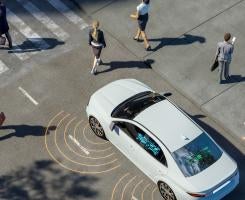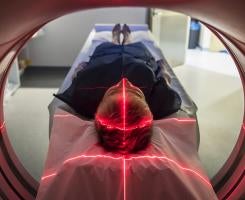Stories by
Patrick Monahan
Pitt PhD students played key roles in a new study that helped stroke patients regain hand movement
With the help of implanted electrodes, two patients recovered everyday skills like holding a soup can. See video of the tech in action.
See the new Webb telescope image that left a Pitt astronomer ‘starstruck’
Using galaxies like a magnifying glass allowed astronomers, including Rachel Bezanson, to capture never-before-seen details in a patch of sky known as Pandora’s Cluster. Look back in time with her.
Worried about students using AI chatbots? This professor isn’t.
Ray Jones in Pitt Business is an avid user of ChatGPT — and he’s encouraging his students to try it, too.
We’re asking the wrong questions about AI
The tech behind Alexa and Tesla might be smart, but is it wise? Pitt philosophers Colin Allen and Brett Karlan say exploring that question could break us out of the artificial intelligence hype cycle.
Pitt mathematicians explain how some fireflies flash in sync
Their model could shed light on more lightning bug behavior as well as other instances of synchronization in nature.
Pitt physicists break down how cells communicate
For cells, the new research shows, there’s such a thing as too much communication. The results have implications for studying cancer and other diseases.
How Pitt biologists are making fieldwork more equitable
In a new publication, Pitt researchers share how they crafted a guide that prioritizes safety for field researchers from marginalized groups.
Pitt geologists mapped how metal pollutants have traveled across the city
A new study shows where industry and weather dropped metals like lead and cadmium in Pittsburgh soils.
Why do galaxies stop making stars? A huge collision in space provides new clues.
Merging galaxies might hurl away the gas that fuels new stars, according to a discovery by Pitt astronomers and their colleagues.
How not to use brain scans in neuroscience
A Nature paper led by a Pitt PhD student revealed a crucial flaw in studies that attempt to predict complex personality traits from one-off brain scans.











